Scope – University
of Melbourne Partnership
Implementing a program of collaborative research and actions that raises community awareness of the challenges faced by people with disability, and finding effective and empowering solutions
The Scope – University of Melbourne partnership
The Scope – University of Melbourne Partnership is a collaboration that draws upon the interdisciplinary expertise of staff from both University of Melbourne and Scope Australia, and the emerging expertise of University of Melbourne students, to be a leader in disability research, teaching and advocacy, informed by rigorous scholarship and the lived experience of people with disability.
Scope Australia was established in 1948, and is one of the largest providers of disability services in Australia. It supports more than 6000 people with a disability in Victoria, through a range of services including; accommodation, mobility support, communication support, recreation/leisure and specialised therapy services. Scope has a long-standing commitment to implementing evidence-based practice and advocacy and, importantly, to generating the evidence to inform its practice and advocacy.
Together, the University of Melbourne and Scope Australia are collaborating on a range of activities that are improving services to, and the lives of people with disability and their families. These activities are interdisciplinary in their focus, involving multiple schools and faculties of the university. These activities also extend beyond the university, to engage with people with disability and their families in the community, collaborations with other leading service providers, and government agencies.
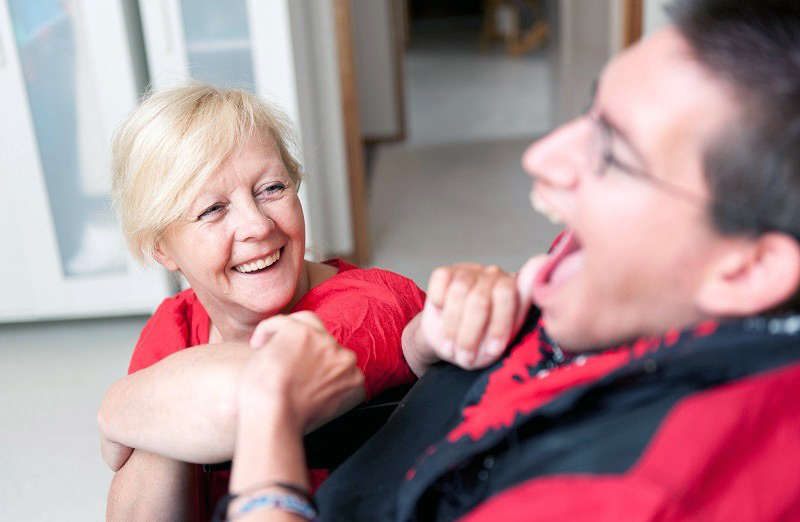
About Scope Australia
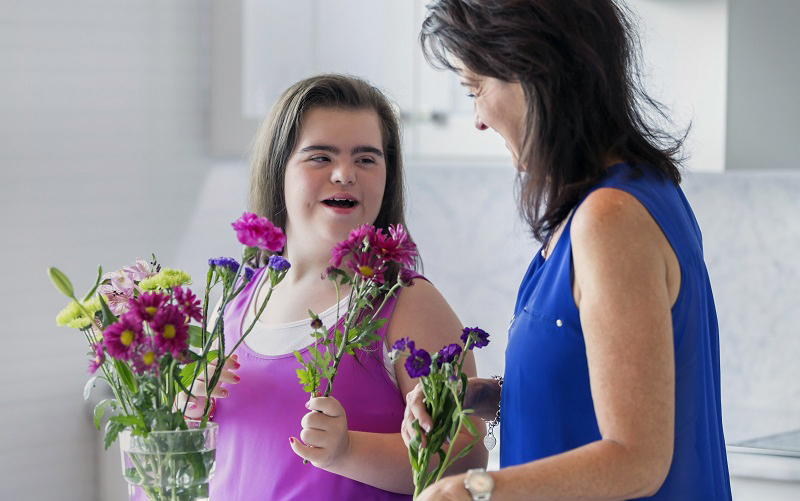
As part of the partnership, Scope Australia and the University of Melbourne work together on research projects, with a commitment to the highest levels of rigour and scholarship. Scope Australia and the University of Melbourne also collaborate in the development and delivery of educational opportunities that are inclusive of people with disability and which are informed by the lived experience of people with disability. These include accredited units of study that are helping to build a professional workforce for our community that understands the needs of people with disability, and which will respond to and work with people with disability in ways that are inclusive and empowering.
Staff
Professor Keith McVilly
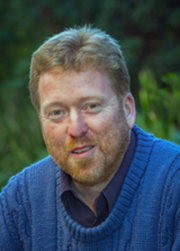
Scope-University of Melbourne Professorial Fellow in Disability and Inclusion
Professor Keith McVilly is the Scope-University of Melbourne Professorial Fellow in Disability and Inclusion. Working across the university, he is situated in the School of Social and Political Sciences. Professor McVilly is an internationally renowned clinical psychologist whose work addresses the translation of research into policy and practice, with a focus on promoting the wellbeing and community inclusion of people with multiple and complex disabling experiences. His work reflects the centrality of relationships to wellbeing. Much of Keith’s research is conducted in applied settings, working directly with people with disability, families and services providers.
Dr Paul Ramcharan is the Scope-University of Melbourne Senior Research Fellow
Dr Paul Ramcharan has been involved in disability policy research for, and in some cases, with people with disabilities for over thirty years during which he has maintained continuous research funding. Paul’s work spans three countries: research on an all-Wales disability strategy (1989-2000); an English national intellectual disability strategy (2000-2007) in which he coordinated a national disability research initiative; and disability research in Australia since 2006.
Paul's work since arriving in Australia has encompassed a number of areas including: disability advocacy and self-advocacy; the development of a Roadmap for the reduction of restrictive practices, choice making, voting and intellectual disability, inclusive research, co-production and, community development and disability. He has also been involved in a number of training initiatives including the development of new Certificated training in disability advocacy and for Disability Certificate 4 as well as most recently professional development training for Authorised Program Officers in their work submitting Behaviour Support Plans under the Disability Act, 2006.
Paul has also held a number of leadership positions related largely to research commissioning with the Department of Health in England, the Social Care Panel of the Big Lottery Fund in the UK, the Social Care Institute of Excellence (SCIE) and as Co-Chair of the Disability Research Reference Panel in the Department of Human Services (now Department of Families, Fairness and Housing).
Paul has co-authored two books, two edited collections, many journal articles as well as delivering a number of plain language documents to suit different audiences. He has also supported twelve PhD students to completion in degrees largely, though not exclusively, linked to disability policy.
In summary Paul has a career which focuses upon disability inclusion and disability inclusive practices and he considers himself a 'friend' to the disability advocacy sector. He has recently completed work on the impact of the NDIS on disability advocacy in Victoria and has undertaken consultancy work supporting advocacy organisations to make submissions to the Royal Commission into Violence, Abuse, Neglect and Exploitation of people with disabilities.
Paul is a methodological eclectic having adopted methods that span both qualitative and quantitative approaches to data collection. However his strengths lie in qualitative approaches, in social practice theory, category analysis and grounded theory, case study approaches, ethnography and participant observation as well ethnomethodology.
Dr Carmel Laragy
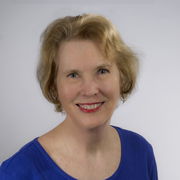
Dr Carmel Laragy is the Scope-University of Melbourne Senior Research Fellow in Community Partnerships
Dr Laragy has expert knowledge in the fields of disability and aged care regarding the provision of services using individual funding. Carmel has studied the introduction of individual funding programs nationally and internationally since the early 2000s. These include the National Disability Insurance Scheme (NDIS) and Consumer Directed Care (CDC) in aged care. She has evaluated national programs and published widely nationally and internationally. Carmel is on the committee of management of Action for More Independence & Dignity in Accommodation (AMIDA), a self-advocacy service for people with intellectual disability; and convenes a peer support group for social workers navigating the NDIS and CDC programs.
Julie Anderson
Scope-University of Melbourne Partnership Coordinator
Julie Anderson is the Scope-University of Melbourne Partnership Coordinator. She provides high level executive support for the Partnership between the University of Melbourne and Scope and is responsible for the administration of the Memorandum of Understanding, the development of research and other collaborations, organising external events and functions and providing support to Professor McVilly. The Partnership Coordinator position was established through the generosity of the Herbert Gordon Emerson bequest.
Advisory Board
Co-chairs of the Advisory Board
Professor Sanchia Aranda
Chair, Scope Australia
Professor Mark Hargreaves
Pro Vice-Chancellor (Research Collaboration and Partnerships), University of Melbourne
Board members
Mr Christian Astourian
Program Manager Diversity and Disability, Migrant Resource Centre North West Region Inc.
Professor Jennifer Balint
Head of School of Social and Political Sciences, University of Melbourne
Ms Wendy Brooks
Managing Director, Wendy Brooks Consulting
Ms Liz Cairns
Head of Independence, Transport Accident Commission
Ms Kate MacRae
CEO, Scope
Professor Keith McVilly
Professorial Fellow of Disability and Inclusion, University of Melbourne
Steering Committee
Co-chairs of the Steering Committee
Associate Professor Jennifer Balint
Head of School of Social and Political Sciences, University of Melbourne
Ms Kate MacRae
CEO, Scope
Committee members
Mr Peter Hartnett
Chief Strategy & Business Development Officer, Scope
Dr Stella Koritsas
Manager, Strategic Research, Scope
Mr Zane McKenzie
Customer Engagement Manager, Scope
Professor Keith McVilly
Professorial Fellow of Disability and Inclusion, University of Melbourne
Ms Catherine Stuckings
Senior Advisor (Accessibility and Inclusion)
Ex-officio
Ms Julie Anderson
Scope-University of Melbourne Partnership Coordinator
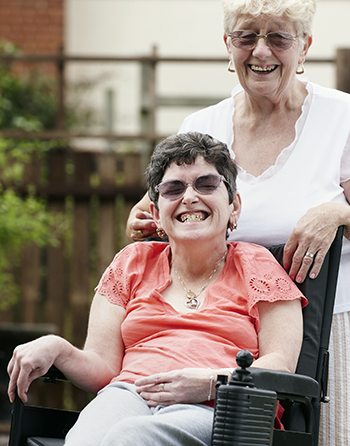
Engagement
The Partnership pursues a joint program of activities aimed at enriching the Disability sector and the University sector and foster an awareness in the wider community of the contribution of people with disability, their support needs, and the importance and value of social inclusion.
Examples of some of the Partnership engagement activities include:
- The biennial Virtual Disability Conference: Raising Expectations was held on Wednesday 21 September. The conference program offered a wide variety of panels and presentations focused on raising expectations by and for people with disability, as a means of overcoming what Graeme Innes AM as the ‘soft bigotry of low expectations’. All the conference content is available as video on demand so it's not too late to register to view it.
- Delivering free webinars as part of Social Sciences Week on a range of topics of interest to the disability community.
2021 event: Customised Employment: An innovative approach to employment for people with disability - An annual Partnership Event featuring prominent speakers discussing important issues for the disability community. The 2021 event, Innovation for Inclusion , featured a panel of speakers exploring innovative enablers to inclusion for people with disability and how such enablers might be adopted in policy and implemented in practice.
2021 event: Innovation for Inclusion
Collaboration
The Partnership aims to influence and develop the practice and culture of the University of Melbourne and Scope, to maximise inclusion for people with disabilities within those organisations.
Informed by the United Nations Convention on the Rights of Persons with Disabilities (CRPD) we will:
- Develop the capabilities of both the current and next generation disability workforce
- Improve disability practices and the delivery of services
- Influence government policy
- Strengthen the culture of the partnership organisations and the community more broadly
If you are interested in engaging or collaborating with us, please email Julie Anderson.